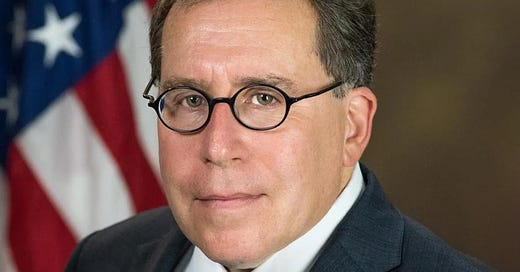Washington, D.C., January 5, 2025 — Jay Bratt, a senior Department of Justice (DOJ) prosecutor and one of the central figures in Special Counsel Jack Smith’s investigation into former President Donald Trump’s handling of classified documents, has resigned. His departure comes at a critical moment as the DOJ faces a leadership overhaul with the imminent return of a Trump-led administration.
Bratt, who served as the chief of the counterintelligence and export control section within the National Security Division, was detailed to Jack Smith’s team as part of the high-profile investigation. His work included coordinating the August 2022 FBI raid on Trump’s Mar-a-Lago estate, which recovered numerous documents alleged to be classified. The raid and subsequent legal proceedings have been at the center of intense public scrutiny and political debate.
A Controversial Tenure
Bratt’s resignation, first reported by SpyTalk, has sparked speculation about the motivations behind his exit. Sources suggest the move may preempt potential repercussions from Trump’s incoming administration. Bratt has been a polarizing figure, facing allegations of misconduct that have clouded his legacy.
One such controversy involved accusations that Bratt attempted to pressure Stanley Woodward, the attorney for Walt Nauta, a close aide to Trump and a co-defendant in the classified documents case. Bratt allegedly implied that Woodward’s potential judicial nomination could be jeopardized unless Nauta cooperated with the investigation and testified against Trump. Critics have pointed to this incident as emblematic of partisan overreach within the DOJ.
Fallout from Trump’s Victory
The timing of Bratt’s departure coincides with a broader shake-up expected in Washington following Trump’s victory in the 2024 presidential election. Trump’s return to the White House has prompted concern among current DOJ officials and FBI agents about potential investigations into their handling of cases involving the former president. Insiders indicate that Bratt’s resignation could be the first of several high-profile exits from the DOJ.
President Trump has not shied away from criticizing the DOJ, frequently alleging bias and misconduct in its investigations into his actions. In a statement following the announcement of Bratt’s resignation, Trump called the prosecutor’s departure “a victory for justice and the American people,” adding that his administration would prioritize rooting out “deep-state corruption” in federal agencies.
A New Role for a Key Attorney
In a twist that underscores the shifting political landscape, Stanley Woodward, the attorney allegedly pressured by Bratt, has been appointed to a senior role in the Trump administration. Trump announced this week that Woodward will serve as Assistant to the President and Senior Counselor. This move is widely seen as a nod to Trump’s commitment to vindicating those he perceives as unfairly targeted by the DOJ.
Woodward’s appointment also signals a realignment of legal priorities under the new administration. Many of Trump’s allies have urged him to use his second term to investigate what they consider politically motivated actions by the DOJ and other federal agencies. Trump has echoed these sentiments, promising a full review of the FBI and DOJ’s conduct during the investigations into his presidency.
Implications for the DOJ and Beyond
The DOJ has not yet issued an official statement regarding Bratt’s resignation. His departure raises questions about the future of several high-profile cases initiated under Jack Smith’s special counsel team. With Trump’s re-election, it remains unclear how these cases will proceed and whether they will face termination or reexamination.
Legal experts note that Bratt’s resignation may signal the beginning of a larger exodus of DOJ officials. Some within the department reportedly fear that Trump’s administration could pursue investigations or even prosecutions against individuals involved in cases targeting him and his allies.
Critics of Bratt and Smith’s team argue that their approach exemplified prosecutorial overreach and a politicized justice system. Supporters, however, view their work as a necessary defense of national security and the rule of law, noting that the investigation into Trump’s classified documents case followed standard legal procedures.
A Shifting Justice Landscape
As the political winds shift in Washington, Bratt’s resignation highlights the growing polarization surrounding the DOJ and its role in politically charged investigations. Trump’s victory and the changes it brings to the DOJ are likely to have lasting implications for the department’s operations, as well as for the broader public perception of justice and accountability in the United States.
With key players like Jay Bratt stepping down and allies of Trump ascending to influential roles, the transition of power marks a pivotal moment for the nation’s legal and political systems. What comes next for the DOJ—and the nation—remains to be seen.

